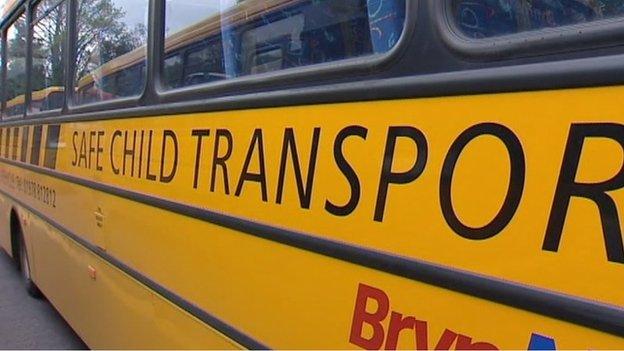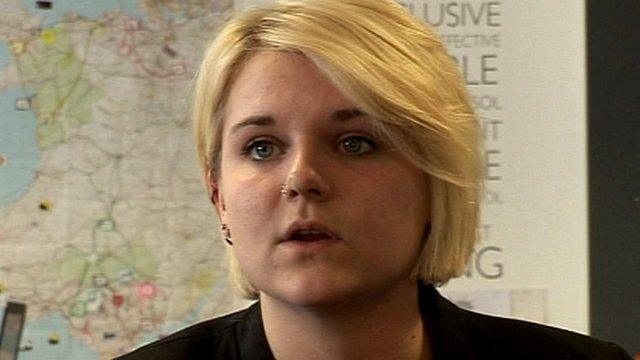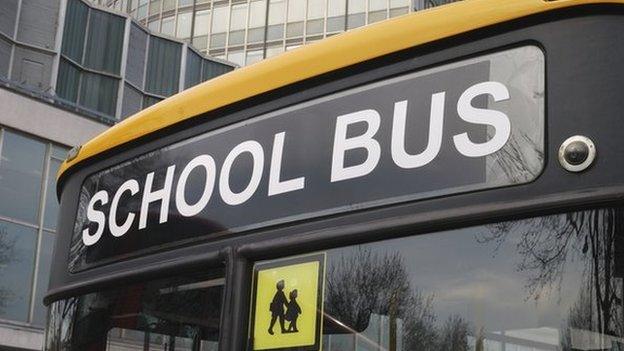Welsh bus costs 'could force poorest pupils out of education'
- Published

Education transport should be 'free and universal' says Children's Commissioner Keith Towler
New and increased transport costs for sixth formers could force those from the most deprived backgrounds to give up school altogether, experts claim.
A third of councils are charging students over the age of 16 for transport, BBC Wales has found.
Another eight are considering changes, with local authority leaders warning councils face difficult choices.
One project manager said bus charges could make the difference between staying on or leaving education.
The costs vary from authority to authority, ranging from £60 to £418 per year.
Seven Welsh councils currently charge students to travel for post-16 education.
But at least a further eight are considering making changes which could involve introducing a fee, BBC Wales has found.
The People and Work Unit works with people from disadvantaged of Wales to help them gain academic qualifications and skills for work.
Project manager James Hall said he was worried it could make the difference between would-be students deciding whether to continue in education.
"For families on a two week benefit cycle who are struggling to keep homes warm in the winter, food on the table, an extra £10/£20 a week on some of these bus routes could be the straw that breaks the camel's back," he said.
Children's Commissioner Keith Towler says the issue concerns him
The children's commissioner said that transport to education must be a "free and universal service".
Keith Towler said: "Charging young people to continue with their education seems to fly in the face of the Welsh government ambitions to reduce the number of young people not in education, employment or training and their aim to eradicate child poverty by 2020."

Case study: 'What I object to is the amount and the jump from what I was paying'
Ceri Hyde lives in Newport with her three children. Two of them, Charlotte and Jordan, are in sixth form at Ysgol Gyfun Gwynllyw, a Welsh medium school in Pontypool.
Ceri Hyde explains more about how the increase has hit her
She has seen the price of a school bus pass increase in the price from £45 to £347 this year.
"I haven't got it in my budget. The council are saying you can pay direct debit every month but if you haven't got the money where is it supposed to come from?" she argued.
Newport Council said that some students had already been paying £347 a year while others were having their transport subsidised by council tax payers - now all students are paying the same.
The authority also it also has a hardship fund available to help those unable to meet the bill.

Sixth formers have traditionally been given access to school transport under the same terms as younger pupils but councils are not obliged to do this.
Now, with councils facing significant financial pressures many non-statutory services are under threat.
The Welsh Local Government Association said that there were grants available for the poorest families but councils were facing some of the most difficult economic conditions in their history.
"Many of the services that people expect their council to offer will be impacted upon as these cuts begin to bite even deeper in the future," said a spokesperson.
The Welsh government added council transport policies and their effect on Welsh-medium education "will be scrutinised".
- Published14 May 2014

- Published1 July 2014
